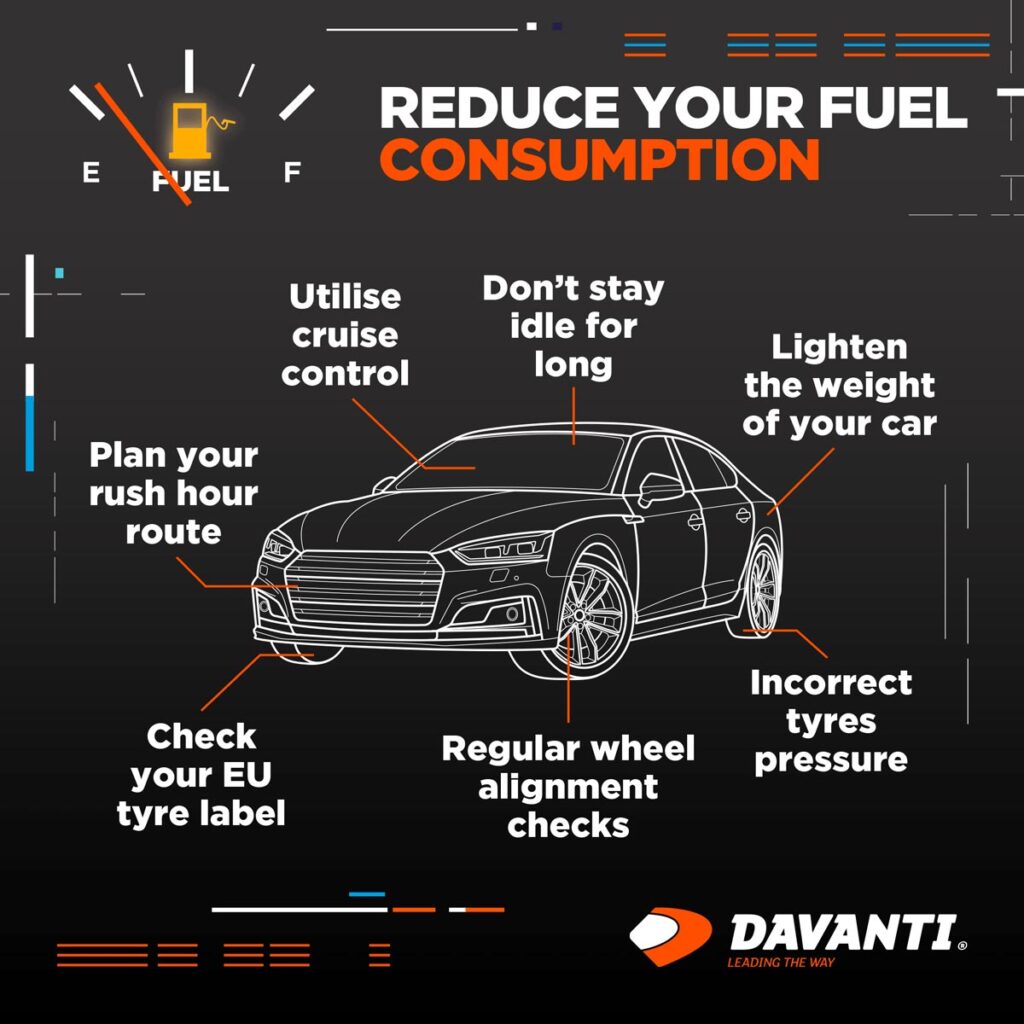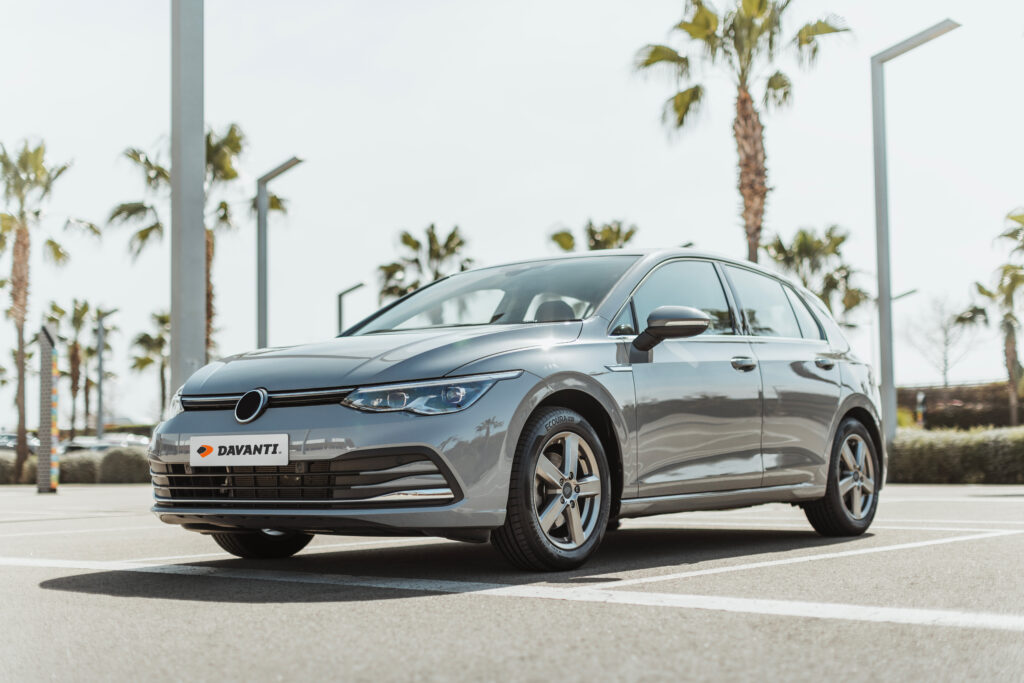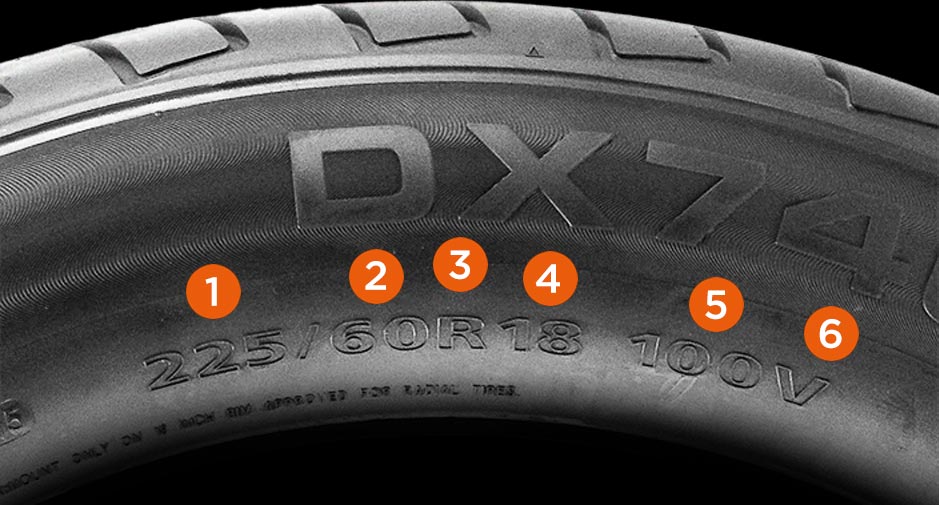
How to reduce your high fuel consumption
Friday 1st July 2022With the cost of fuel now eye wateringly high, being aware of consumption is becoming more important than ever. Fortunately, there are some easy tips you can use to get the most out of your tank and reduce consumption.
Wheel alignment checks
Correct wheel alignment is beneficial both from a safety and fuel efficiency point of view. It is recommended that you check the alignment of your tyres every year to prevent uneven wear from damaging your tyres and degrading performance. Having uneven wear can generate extra rolling resistance on the tyres, meaning more energy is required to drive them forward increasing fuel consumption. To learn more about the causes of uneven wear you can find a detailed breakdown here.
Incorrect tyre pressure
Tyres which are underinflated can have a higher rolling resistance on the road. While it is not only recommended to maintain a safe PSI in your tyres for other safety reasons, underinflated tyres will also generate increased friction, leading to issues such as uneven wear. Even as little as 10psi could increase the petrol usage of your car by up to 10%. For more information on your tyre pressure consult your manual or use our handy dealer locator to contact an expert.
Check the EU Tyre Label
Every new tyre purchased will come with an EU Tyre label which highlights the fuel efficiency rating of the tyre, allowing you to make an informed choice when purchasing. Rolling resistance is an indicator of the tyre’s energy efficiency which directly impacts fuel consumption, with ratings from A (most efficient) to F (least efficient). However, it should be noted that different types of tyres such as Winter or All-terrain will have slightly different performance levels when compared to a summer tyre, as the tread pattern will be designed for different purposes. You can learn more about EU Tyre labels by clicking here.
Lighten the weight in your car
The heavier your vehicle, the more energy will be needed to keep it moving on the road. Often we use our cars as extra storage space, but the additional load can lead to unnecessary fuel consumption – potentially an extra 2% depending on the size of your car and boot. So it’s wise to only carry the most essential items when travelling.
Plan for a more efficient route
Finding the best route for your journey is easier than ever, and it can save you on fuel. A lot of modern sat nav systems now include eco-routing, to help you get to where you need to be in the most economical way. Navigation apps such as Google Maps are now adding enhanced eco-routing journeys to save on the cost of your journey while lowering your car’s environmental footprint.
Don’t stay idle for long
Sitting in traffic with your engine running for long periods of time can not only increase your fuel consumption but also the wear on your engine. It’s recommended to shut off your engine when waiting for periods longer than 60 seconds, otherwise, you will waste fuel. Fortunately, many modern cars enable a stop/start system in traffic that could – according to the American Automobile Association – lower your fuel usage by between 5-7%.
Using your car’s Eco mode
Many modern cars now come with driving modes that allow you to get more out of your engine, including eco-mode. This mode reprogrammes your engine to be less aggressive, minimising the amount of energy required, and so consuming less fuel. Depending on the age of your vehicle and brand eco-mode performance can vary when it comes to acceleration and gear changes.
Take advantage of cruise control
When driving on flat surfaces such as a motorway you can utilise your car’s cruise control. This keeps your driving steady and consistent, preventing the use of additional fuel from constant changes in speed and pressing pedals down. However, it is not recommended to use cruise control in residential areas or on narrow roads, where it is more difficult to manage a constant speed over varying gradients.



